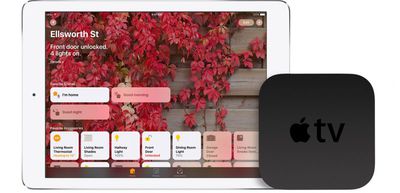Apple has taken steps to make its HomeKit smart home platform more accessible to third parties in order to encourage faster adoption, the company announced at the Worldwide Developers Conference on Wednesday (via Forbes).
Apple told developers in session that they no longer need an MFi (Made for iPhone/iPod/iPad) license to test out HomeKit smart products before bringing them to market, and are even free to experiment with the platform using popular custom-fit boards like Arduino and Raspberry Pi.

The looser licensing should make it easier for developers to test out prototypes of smart home gadgets, although certification must still be obtained before the products are ready for commercial sale, Apple noted.
In addition to the licensing change, Apple has updated its HomeKit specification so that compatible smart products no longer have to include a hardware authentication chip. The update means authentication will go through software instead, with a firmware update allowing existing or future products to go through the same software-based authorization. Despite the change, Apple said the authentication process would use the same hardened encryption as it always has.
HomeKit has enjoyed reasonably wide support among smart gadget manufacturers, although users have sometimes had to wait for products to add the standard well after they have come to market. With a little luck, yesterday's announcement should minimize the time it takes for third parties to integrate HomeKit into their smart gadgets.




















Top Rated Comments
This is interesting news, I use homebridge on my Raspberry Pi to control non HomeKit and ‘dumb’ devices with Siri and the iPhone. I wonder what effect this will have on these workarounds?
The coolest product would be a little chip to put between a powerline and a ceiling mounted hanging light. These bulb Adapters, or the smart bulb themselves don't work for my use case, as I have these cool vintage lightbulbs in golden lamp sockets.. why is there nothing to attach to the cable directly?